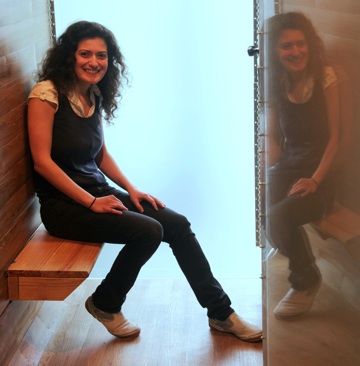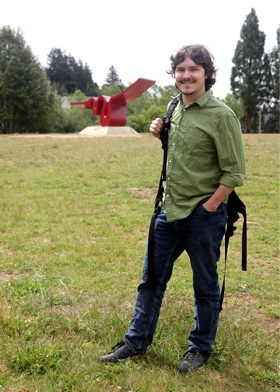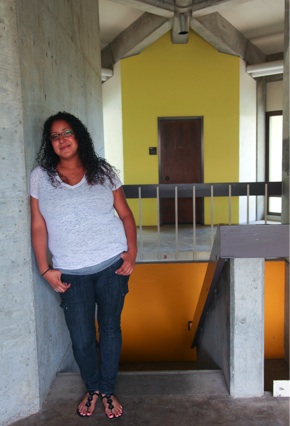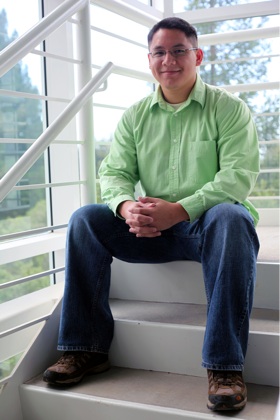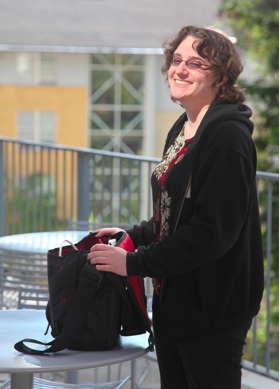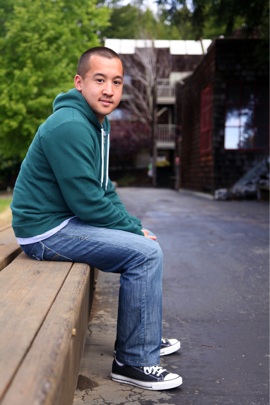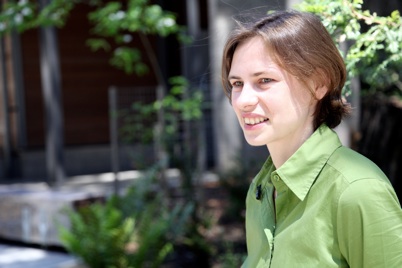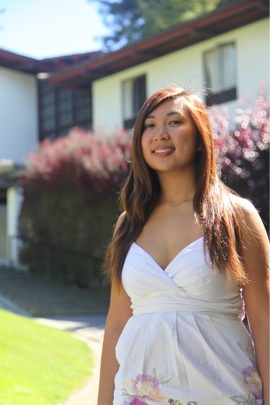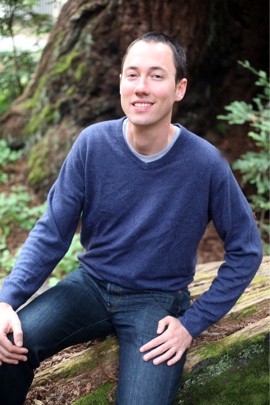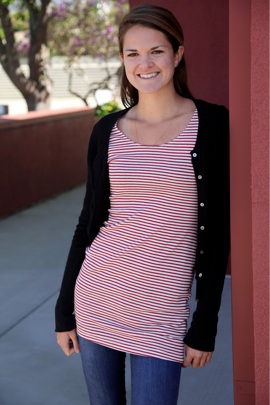
Fabiola Hanna says that when she was growing up, "The Lebanese history we learned stopped at World War II." Hanna's thesis project is an innovative tool to bridge that gap. She videotaped interviews of 35 people who experienced that time in Lebanon and assembled their collective stories into a participatory living archive called "We Are History: A People's History of Lebanon." The project, exhibited both at the Santa Cruz Museum of Art and History and this year's DANM M.F.A. exhibit, is an interactive booth that lets viewers select stories and even upload their own histories. Hanna is also a dedicated teacher. She spent the past few summers teaching technology skills to low-and middle-income high school students at Fab Lab in San Diego—a collaboration with the nationwide MIT-sponsored Fab Labs—and she'll be there again this year.
- What made you choose UC Santa Cruz?
- I was attracted to UCSC for several reasons, but most importantly the DANM Participatory Culture group. I am interested in using art and technology to address social problems, and that's what the group is all about.
- The most exciting thing about your graduate research/project?
- My thesis project creates a space for contradicting versions of history to collide and to be placed side by side in order to imagine what a collective history would look like. This is critical in countries where there are no official versions of history because people don't agree about their past, which makes it harder to agree about the present. I'm excited that it is a project that will be used in real-world applications not only for Lebanese history, but also for other places around the world.
- Biggest accomplishment or proudest moment?
- I have so many! Collecting the oral histories was something I had never done before, so I was very nervous about it. But when I sat in front of interviewees, I loved the conversations that happened and realized how important the work I was doing was. Another was putting the project together, including designing, building, sawing, nailing, painting, and coding. And winning an Alumni Award at this year's UCSC Graduate Research Symposium. And I don't want to miss mentioning that I am very happy about graduating. After two years of hard work, celebrating with friends and faculty at our reception was amazing!
- How has your graduate education shaped you professionally?
- I came to UCSC having held workshops and taught in high schools, but through working and learning with many amazing professors, I have learned to be a better teacher in the classroom. It excites me so much to teach things I really love.
- What are your plans after graduation?
- This summer, I am going to teach high school students "Electronics, Hacking, and Wearable Technologies" as part of Fab Lab at UC San Diego Extension. In the fall, I will come back to UCSC to teach a graduate class on electronic art; and the following year I hope to pursue my Ph.D. in UCSC's Film and Digital Media program.











